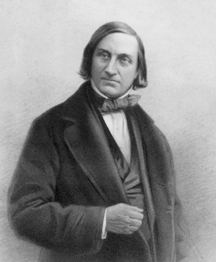A Quote by Freeman Dyson
The question that will decide our destiny is not whether we shall expand into space. It is: shall we be one species or a million? A million species will not exhaust the ecological niches that are awaiting the arrival of intelligence.
Related Quotes
When I am at a dinner table, I love to ask everybody, 'How long do you think our species might last?' I've read that the average age of a species, of any species, is about two million years. Is it possible we can have an average life span as a species? And do you picture us two million years more or a million and a half years, or 5,000?
Diversity is a survival factor for the community itself. A community of a hundred million species can survive anything short of total global catastrophe. Within that hundred million will be thousands that could survive a global temperature drop of twenty degrees—which would be a lot more devastating than it sounds. Within that hundred million will be thousands that could survive a global temperature rise of twenty degrees. But a community of a hundred species or a thousand species has almost no survival value at all.
The hopes of Europe's six million Jews are centered on emigration. I was asked, 'Can you bring six million Jews to Palestine?' I replied, 'No'....From the depths of the tragedy I want to save two million young people...The old ones will pass. They will bear their fate or they will not. They were dust, economic and moral dust in a cruel world...Only the branch of the young shall survive...They have to accept it.
There are millions of different species of animals and plants on earth--possibly as many as forty million. But somewhere between five and fifty BILLION species have existed at one time or another. Thus, only about one in a thousand species is still alive--a truly lousy survival record: 99.9 percent failure!
Clearly, we are a species that is well connected to other species. Whether or not we evolve from them, we are certainly very closely related to them. A series of mutations could change us into all kinds of intermediate species. Whether or not those intermediate species are provably in the past, they could easily be in our future.
The constantly recurring question must be: What shall we unite with and from what shall we separate? The question of coexistence does not enter here, but the question of union and fellowship does. The wheat grows in the same field as the tares, but shall the two cross-pollinate? The sheep graze near the goats, but shall they seek to interbreed? The unjust and the just enjoy the same rain and sunshine, but shall they forget their deep moral differences and intermarry? ... The Spirit-illuminated church will have none of this
There are about 250,000 different species of fossil plants and animals known . . In spite of this large quantity of information, it is but a tiny fraction of the diversity that [according to the theory] actually lived in the past. There are well over a million species living today and . . [it is] possible to predict how many species ought to be in our fossil record. That number is at least 100 times the number we have found.
Palaeontological research exhibits, beyond question, the phenomenon of provinces in time, as well as provinces in space. Moreover, all our knowledge of organic remains teaches us, that species have a definite existence, and a centralization in geological time as well as in geographical space, and that no species is repeated in time.




































